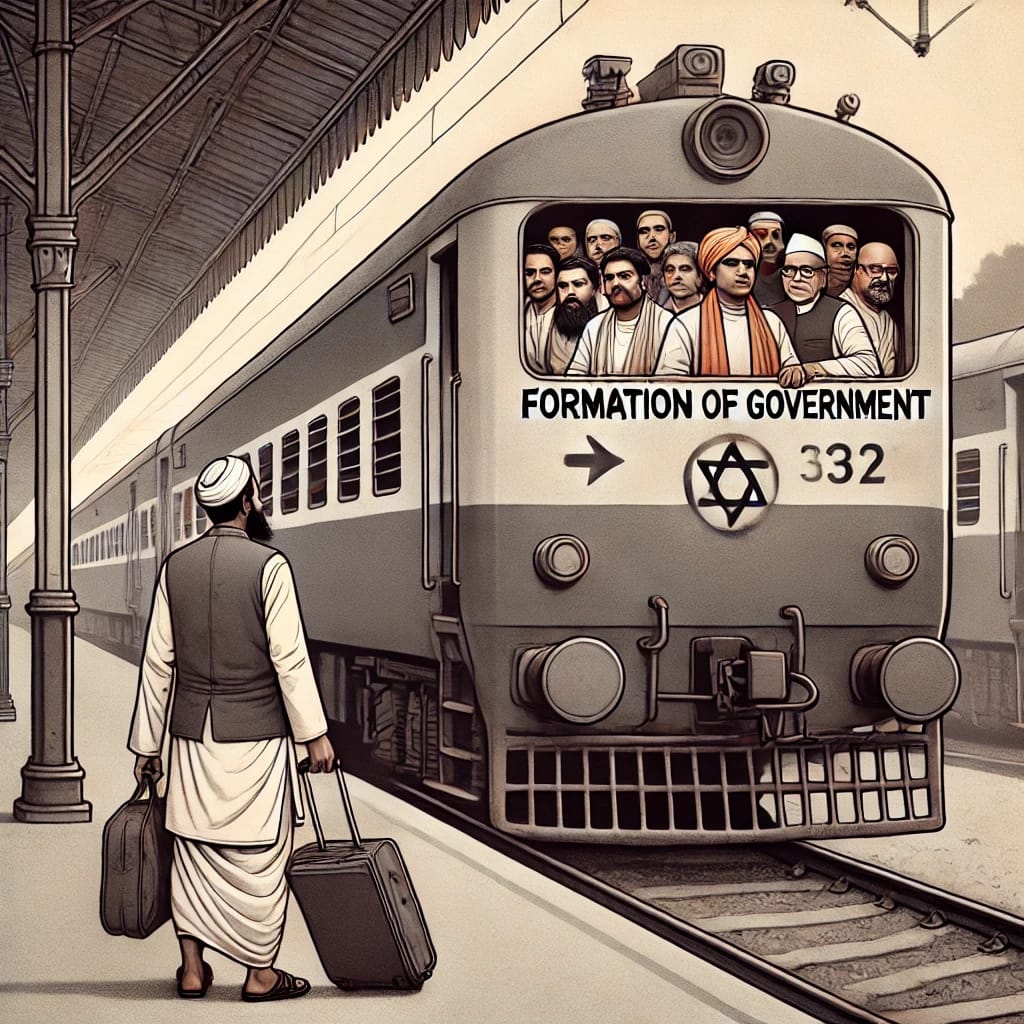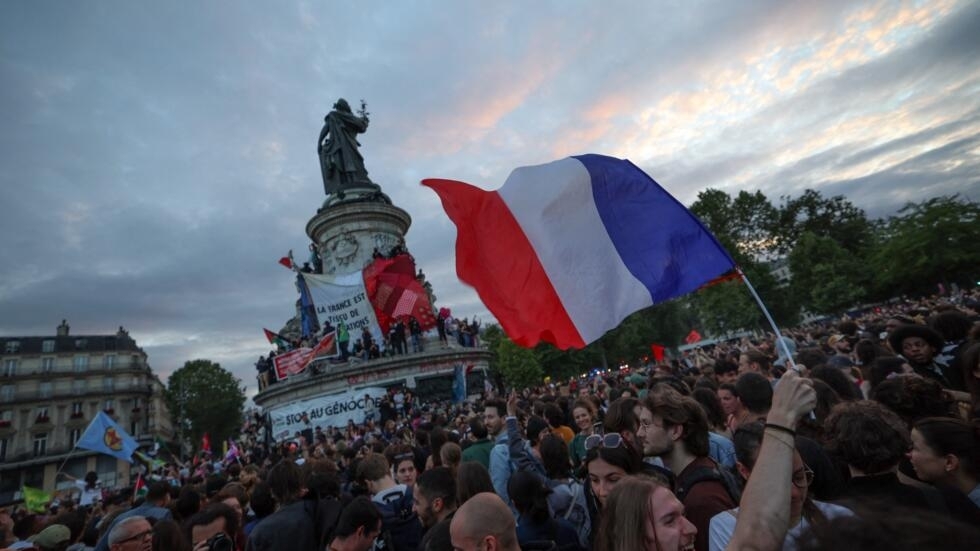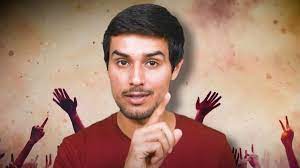
In Maharashtra, the battle is less about power and more about proving who the real party and rightful heirs are. Here, Congress and BJP are fighting for power, but both need support to form a government. Congress has its Shiv Sena (Uddhav Thackeray) and Nationalist Congress Party (Sharad Pawar), while BJP has its Shiv Sena (Eknath Shinde) and Nationalist Congress Party (Ajit Pawar). Without these alliances, neither Congress nor BJP can form a government. For both Shiv Senas and both factions of the NCP, this is a fight for their identity. These parties are fighting more to prove their legitimacy than for power.
In the last Lok Sabha elections, BJP was in a weak position in Maharashtra. However, with Modi’s return and despite predictions of Congress winning in Haryana, BJP’s victory there has strengthened it slightly. Now BJP is playing on the front foot in Maharashtra, and just as it has fought elections on the “Hindutva” issue in other states, it has taken up the Hindutva plank here too. They have given the slogan “We’ll be safe if we’re united” to rally Hindus against Muslims. This slogan is visible on posters and banners across Maharashtra, and discussions about it are common in rallies and meetings. However, it may not be possible to gain votes solely on the anti-Muslim sentiment because the Maratha reservation movement poses a challenge to BJP here. BJP suffered due to this issue in the Lok Sabha elections, and the Maratha factor is still influential, although the Hindutva wave is dominant. But the Maratha factor is a hindrance to the Hindutva path.
Now that the Maratha factor has become a bigger obstacle than the Muslim community to Hindutva in Maharashtra, BJP’s policy here is a bit more flexible than in other parts of the country. With a significant shift of Maratha votes away from BJP, it is now also eyeing Muslim votes. Although BJP is trying hard to bring Maratha votes into its fold through Hindutva and religious appeals, it is also making efforts to win over some Muslim votes. As part of its campaign, BJP has been running ads on social media targeting Muslim students with scholarships. The budget of Maulana Azad Minority Corporation has been increased to 1,000 crore rupees. While in states like Assam, Uttar Pradesh, Uttarakhand, and Madhya Pradesh, BJP governments have been tough on madrasas, taking actions like shutting them down, cutting teachers’ salaries, etc., in Maharashtra, the BJP alliance government has tripled the salaries of madrasa teachers.
These are the initiatives aimed specifically at Muslims. Similarly, a few months before the elections, the BJP alliance government launched the “Ladli Behna” scheme, which offers women a monthly allowance of 1,500 rupees. Before the announcement of the election date, each woman who applied for this scheme received 7,500 rupees. It is worth noting that this scheme was also introduced in Madhya Pradesh before the Lok Sabha elections, benefiting 12.5 million women, which had an impact on the election results and led BJP to victory in all seats in Madhya Pradesh. In Maharashtra, 13.5 million women have been declared eligible for this scheme, and 90% of them have already received 7,500 rupees in their bank accounts. Some women received 4,500 or 3,000 rupees. A large number of Muslim women have also benefited from this scheme. There has been no discrimination in distributing the scheme benefits, so it wouldn’t be surprising to see significant Muslim votes in favor of BJP in the election results. Although the Ladli Behna scheme is a masterstroke by BJP, it has caused dissatisfaction among upper classes and taxpayers. However, whether this dissatisfaction will push them to vote against BJP remains uncertain.
Congress performed well in Maharashtra in the last Lok Sabha elections, but the situation has changed rapidly. Congress’s defeat in Haryana has slowed down its momentum. Congress is contesting 105 seats and has given tickets to 8 Muslim candidates. In Maharashtra, Congress’s attitude towards its allies has not been positive. It appears arrogant, not trying to gauge the situation, and seems to be carried away by its previous victory in the Lok Sabha elections. Regarding Muslims, the Maharashtra Congress’s approach is as communal as that of BJP. Its leaders do not want Muslims within Congress to advance; those who do are sidelined, such as Abdul Sattar and Zeeshan Siddique, who are examples of this.
Sharad Pawar’s Nationalist Congress Party (NCP) is contesting 87 seats, of which only 2 Muslim candidates have been nominated. Sharad Pawar is a dominant political figure in Maharashtra, known not only for leading his own party but also for helping allied parties secure victories. This time, he has nominated his loyal veteran, Mahboob Shaikh, from Ashti, which deserves appreciation.
Ajit Pawar’s faction of the NCP, allied with BJP, has nominated the most Muslim candidates after Congress. Ajit Pawar’s NCP has fielded 5 Muslim candidates despite contesting only 51 seats. Ajit Pawar stands out for his commitment to promoting loyal, hardworking party members and giving them opportunities to advance. Although Ajit Pawar’s NCP won only one seat in the last Lok Sabha elections, it is in a better position in this assembly election, where Ajit Pawar is expected to play a key role in forming the next government. Ajit Pawar is an influential personality and has maintained a strong hold over Chief Minister Eknath Shinde and Deputy Chief Minister and Home Minister Devendra Fadnavis.
Eknath Shinde’s Shiv Sena is relatively weak and relies heavily on the strength provided by BJP. In Maharashtra, BJP seeks a compliant Shiv Sena that is essentially a puppet, which was not possible with the Thackeray family in control. Therefore, a rebellion was instigated, rallying Shiv Sena and its supporters behind Shinde. Eknath Shinde’s Shiv Sena is contesting 88 seats but has given a ticket to only one Muslim candidate, Abdul Sattar, who was a minister in the previous government. Shinde’s battle is not for power; he cannot become Maharashtra’s Chief Minister even if he wants to. His struggle is solely to preserve his own existence.
Uddhav Thackeray’s Shiv Sena has the sympathy of the people of Maharashtra, especially the Maratha community. The way he was treated has increased public sympathy for him. His administration’s work during its two and a half years, particularly during the COVID-19 period and the CAA protests, in maintaining peace, is noteworthy. A significant number of Muslims are seen supporting Uddhav Thackeray’s Shiv Sena, although he has only nominated one Muslim candidate while contesting 96 seats. If Uddhav had chosen to engage in aggressive politics on issues like Maratha pride and self-respect, he could have put BJP and Eknath Shinde in a tough spot. However, his calm nature led him to remain composed and focus on issues such as employment, development, and law and order. Despite this, he presents himself and his party as flagbearers of Hindutva, proudly taking credit for the demolition of the Babri Masjid while also voicing support for individuals like Gauri Lankesh and Bilkis Bano.
Apart from these six main parties, the All India Majlis-e-Ittehadul Muslimeen (AIMIM) is also an influential party in Maharashtra. AIMIM has gained significant traction among Muslims in Maharashtra. Since 2014, the party has had two MLAs, and from 2019 to 2024, it also had an MP. Imtiaz Jaleel lost in the recent Lok Sabha elections, but his popularity has increased at the state level in Maharashtra. In this election, AIMIM is contesting only 16 seats, compared to 24 in 2014 and 43 in 2019. This time, AIMIM has entered the elections with a well-thought-out plan. Among AIMIM’s 16 candidates, only 3 are competing against Muslim candidates from the six major parties, while 13 are contesting from seats where these parties have no Muslim candidates. Out of AIMIM’s 16 candidates, 4 are non-Muslims, and the party has also given tickets to 2 women. AIMIM has carefully assessed every aspect this time, ensuring that there isn’t a single seat where it can be said that AIMIM’s presence will divide the secular vote. AIMIM’s strategic decisions have led to suspicions of an understanding between AIMIM and Congress, as AIMIM has no candidates in any of the 8 seats where Congress’s Muslim candidates are contesting. The Congress candidate in Malegaon Central is seen as insignificant, so it hasn’t been taken into account.
Apart from these parties, several others have entered the fray in this election without any real planning, preparation, or purpose. The Samajwadi Party and Vanchit Bahujan Aghadi seem to have made it their mission not to win but to defeat the Muslim candidates from the All India Majlis-e-Ittehadul Muslimeen (AIMIM). Wherever AIMIM has fielded a candidate, these two parties have also nominated their own Muslim candidates, clearly indicating that their objective is not to stop the BJP alliance but to counter AIMIM and Muslim candidates.
Similarly, the parties of Chandrashekhar Azad, Dr. Ayub, and Maulana Amir Rashadi have unnecessarily entered the Maharashtra elections, and their candidates are also positioned against AIMIM. However, the presence or absence of these parties does not have a significant impact on the Maharashtra elections.
Whether the BJP alliance “Mahayuti” will form the government in Maharashtra, or the Congress alliance “Maha Vikas Aghadi” will come to power, is still uncertain. This will depend on circumstances and political interests.
The BJP’s Hindutva agenda is moving fast in Maharashtra, yet people are beginning to realize that despite BJP’s ten years in the central government and seven and a half years in Maharashtra, they lack even ten significant achievements to confidently campaign on. Additionally, numerous companies and projects that were set up in Maharashtra are now being shifted to Gujarat, reducing employment opportunities in Maharashtra. The public is aware of this. Although Hindutva remains dominant, there is a silent resentment among the people that is unsettling for the BJP. In the recent Lok Sabha elections, the people of Maharashtra overwhelmingly defeated the BJP, and there is a strong chance of a similar outcome in the assembly elections.
Muslims should rise above the outdated politics of secularism and communalism and focus on becoming part of the power structure. Muslims should aim to increase their representation. Among Muslim candidates from the Maha Vikas Aghadi, Mahayuti, and AIMIM, there is competition in only a few places, while on most seats, there is no clash between Muslim candidates. This is a golden opportunity for Muslims to be present on both sides, in the government and in the opposition in Maharashtra.
Muslims should vote for the Muslim candidate Abdul Sattar from the Shiv Sena faction of Eknath Shinde, part of the BJP alliance, in Sillod. Similarly, Ajit Pawar’s NCP, also part of the BJP alliance, has fielded 5 Muslim candidates, including Sana Malik, daughter of Nawab Malik, from Anushakti Nagar; Zeeshan Siddiqui, son of the late Baba Siddiqui, from Bandra East; Hasan Mushrif from Kagal; and Nawab Malik from Shivaji Nagar in Manhkhurd. Muslims should support these candidates.
Similarly, out of Congress’s 8 candidates in the Congress alliance, it is necessary to vote for and support the seven candidates, except the one in Malegaon. Muslims should vote for Mahboob Shaikh from Sharad Pawar’s NCP in Ashti, although Sharad Pawar’s NCP also has Fahad Ahmed as a candidate in Anushakti Nagar, but Sana Malik is a more viable option there. Uddhav Thackeray’s Shiv Sena has nominated Haroon Khan from Versova, and Muslims should vote for him. Although AIMIM’s Rais Lashkariya is also a candidate here, Uddhav Thackeray’s Shiv Sena’s Haroon Khan remains the better option.
Outside the BJP and Congress alliances, AIMIM has 16 candidates in the field, of which 8 have strong chances of winning. If any of these 8 candidates lose, they will likely be in second place. The eight candidates are Imtiaz Jaleel (Aurangabad East), Nasir Siddiqui (Aurangabad Central), Farooq Shah (Dhule), Mufti Ismail (Malegaon), Syed Moeen (Nanded South), Fayyaz Ahmed (Byculla), Waris Pathan (Bhiwandi West), and Farooq Shabdi (Sholapur). Muslims in Maharashtra should try to give AIMIM’s candidates a one-sided vote to ensure their victory. For the remaining 8 candidates, decisions should be made based on their chances.
The Samajwadi Party is technically part of the Maha Vikas Aghadi alliance, which gave it the Shivaji Manhkhurd and Bhiwandi East seats, where it has had MLAs previously. However, the Samajwadi Party has still fielded 6 more Muslim candidates in seats where AIMIM’s Muslim candidates have a high chance of winning. If AIMIM candidates lose, the Samajwadi Party will be the cause. In Bhiwandi East, there are no other Muslim candidates, so Muslims should vote for the Samajwadi Party’s Rais Shaikh. Abu Asim Azmi has been the MLA from Shivaji Manhkhurd, and as a member of the Congress alliance, he is the Samajwadi Party’s candidate here. However, Nawab Malik from Ajit Pawar’s NCP in the BJP alliance remains a better option on this seat.
On the Mumbra-Kalwa seat, where AIMIM and Ajit Pawar’s NCP both have Muslim candidates, Muslims should vote for “Jitendra Awhad” from Sharad Pawar’s NCP, as he is both a better and viable candidate.
The Vanchit Bahujan Aghadi, BSP, Peace Party, Azad Samaj Party, and Rashtriya Ulema Council have negligible chances of winning, so avoid wasting votes on them.
“At a railway station, there are two types of people who wait for the train. One is the passenger who boards the train upon its arrival and reaches their destination. The other is the porter who helps passengers get on and off the train and earns his wages.” Muslims have become like porters in Indian politics who neither benefit from the boarding nor disembarking, doing it all for free.
Therefore, this time, do not vote merely to bring Congress’s Maha Vikas Aghadi to power or to defeat the BJP’s Mahayuti alliance. Instead, become a part of the train heading toward forming the next government; board it as a passenger rather than bearing burdens as a porter at the station.


